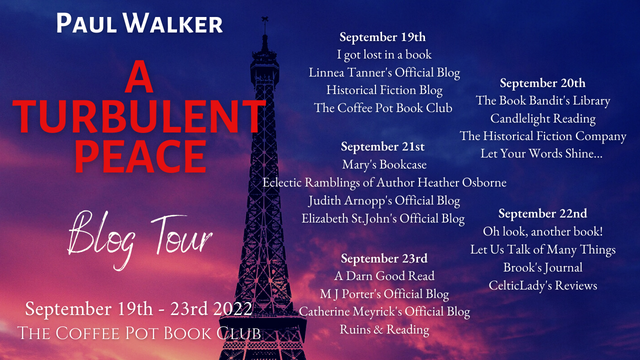
18 Sep Paul Walker A Turbulent Peace Coffee Pot Book Club Blog Tour #HistoricalFiction #BlogTour #CoffeePotBookClub @PWalkerauthor @cathiedunn
FEATURED AUTHOR: PAUL WALKER
It is my pleasure to welcome Paul Walker as the featured author in The Coffee Pot Book Club Blog Tour being held between September 19th — September 23th 2022. Paul Walker is the author of the Historical Fiction, A Turbulent Peace, which was released by Sharpe Books on 22nd July 2022 (305 pages).
Below are highlights of A Turbulent Peace, Paul Walker’s author bio, and an excerpt from his novel.
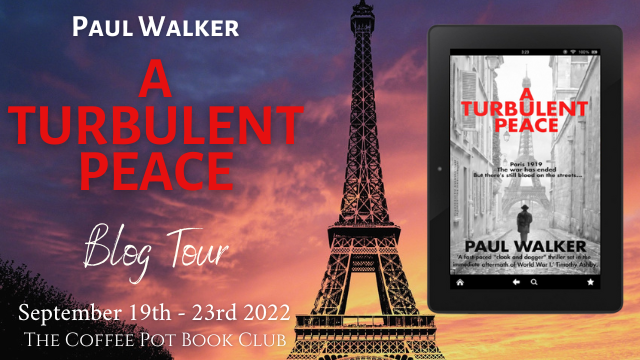
To follow the blog tour, CLICK Tour Schedule
HIGHLIGHTS: A TURBULENT PEACE
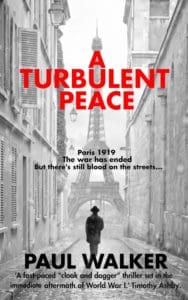
A Turbulent Peace
by Paul Walker
(Blurb)
January 1919.
Following the armistice, Mary Kiten, a volunteer nurse in northern France, is ready to return home to England when she receives a surprise telegram requesting that she report to Paris. The call comes from her Uncle Arthur, a security chief at the Peace Conference.
Within minutes of arriving at the Majestic Hotel in Paris, Mary hears a commotion in the street outside. A man has been shot and killed. She is horrified to learn that the victim is her uncle. The police report the attack as a chance robbery by a known thief, who is tracked down and killed resisting arrest.
Mary is not convinced. Circumstances and the gunshot wound do not indicate theft as a motive. A scribbled address on Arthur’s notepad leads to her discovery of another body, a Russian Bolshevik. She suspects her uncle, and the Russian, were murdered by the same hand.
To investigate further, Mary takes a position working for the British Treasury, headed by J M Keynes.
But Mary soon finds herself in the backstreets of Paris and the criminal underworld.
What she discovers will threaten the foundations of the congress.
Buy Links:
This book is available to read on #KindleUnlimited
Universal Link ♦ Amazon UK ♦ Amazon US ♦ Amazon CA ♦ Amazon AU
AUTHOR BIO: PAUL WALKER

Paul lives in a village 30 miles north of London where he is a full-time writer of fiction and part-time director of an education trust. His writing in a posh garden shed is regularly disrupted by children, a growing number of grandchildren and several dogs.
Paul writes historical fiction. The William Constable series of historical thrillers is based around real characters and events in the late sixteenth century. The first two books in the series – “State of Treason” and “A Necessary Killing”, were published in 2019. The third book, titled “The Queen’s Devil”, was published in the summer of 2020.
Travel forward a few hundred years from Tudor England to January 1919 in Paris and the setting for Paul’s latest book, “A Turbulent Peace”. The focus of the World is on the Peace Conference after WW1 armistice. Add a dash of Spanish Flu, the fallout from the Russian Revolution, and you have a background primed for intrigue as nations strive for territory, power and money.
Social Media Links:
Website ♦ Twitter ♦ Facebook ♦ LinkedIn ♦ Amazon Author Page ♦ Goodreads
EXCERPT 1: A TURBULENT PEACE
Wimereux, France
Monday, 6 January 1919
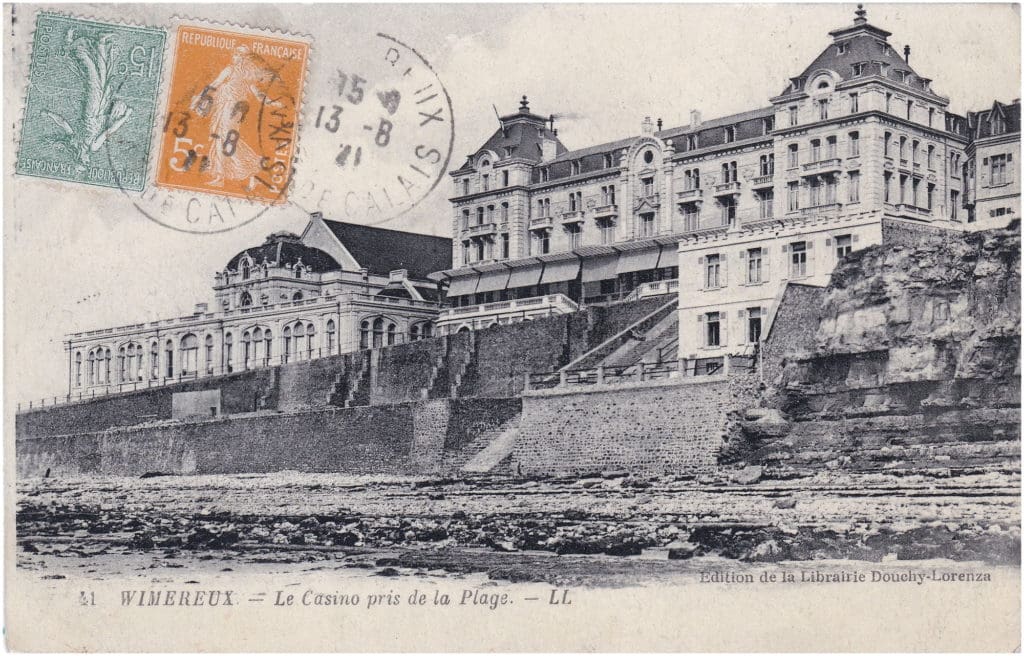
I hefted the leather suitcase and closed the door to my room without a backward glance. The promenade at Wimereux was a grey and cheerless place. We temporary residents referred to it as Pancake City, and I had been unable to find a more interesting explanation on the origin of the nickname than our partiality for the offerings of traders on the sea front. Predictably, there were no carts or kiosks in sight at that time of year. I used to scoff at the old adage, too cold to snow; nonsense of course, but on that day I could believe it. The icy chill in the air seemed too stiff and unyielding for anything as soft and delicate as a snowflake. I shivered as the razor-sharp bite of the offshore breeze twisted and poked its way through my winter coat. I stopped in the shelter of a hut, tightened my scarf, raised my coat collar and stamped my feet. The beach was deserted and a crashing, resentful sea was empty save for the distant, blurred outline of a ship disappearing into the gloom. Destination Dover, perhaps. Kent. Home. A day or two more and I would be there. It was almost three years since I had said a tearful goodbye to Mother, and I would return a different person. For her sake, I would have to try and recover some of the innocence and joy I left behind when I crossed the Channel.
It was only a few hundred yards from my lodgings to Hotel Splendide, or Stationary Hospital 14, as it had been known since late 1914. Before the war, I was told the town was an elegant and lively place – the Nice of the North. Now, the smart hotels and villas along the front, empty if not requisitioned for hospital or military use, gave an air of anti-climax and melancholy. I passed the main hotel entrance and headed for the casino at the side. Offering a sympathetic smile to the sentry outside, I entered what had become the administrative and supply centre for the region. The entrance hall was stacked with blankets, mattresses, bed frames, pots, pans; everything an army hospital might need, except surgical instruments and medication. The sergeant outside Faulkner’s office tapped the door, opened it, announced my name, then closed it behind me. The Colonel barely lifted his head to notice my entry and continued to write in a ledger. A trim man in his late thirties, his appearance matched the laboured and precise progress of his writing. He finished, moved the ledger to one side, placed his pen inside a hinged wooden box, then gazed at me as though startled to see someone standing on the other side of his desk.
‘Ah, yes, Miss Kiten, do take a seat.’ He made an extravagant show of raising an arm to check his wristwatch. ‘I was beginning to wonder what had delayed you.’
‘Thank you, Colonel and my apologies if I kept you waiting.’ I watched as he reached for a paper on top of a tray to his left. ‘Am I going home at last?’
He looked at me over his spectacles, then removed them and cleared his throat. ‘I’m afraid not. We had a telegram this morning.’ He smoothed out the paper creases on his desk. ‘You are due on the next train to Paris.’
‘Paris? I thought…? Why? What does it say?’ I couldn’t understand. Perhaps there had been a mistake.
He raised an eyebrow. It seemed my initial reaction was unexpected. ‘Of course, you don’t have to go, Miss Kiten. After all, you’re a volunteer.’ He replaced his spectacles and scanned the paper again. ‘Which is why it was such a surprise to get a telegram like this.’ He paused and shook his head as though finding the words difficult to comprehend. ‘Why on earth is the War Office sending a telegram to a volunteer nurse?’ His question was a rhetorical one, spoken as though I wasn’t present.
‘The War Office?’
‘Yes, it seems they have a position in mind for you.’
‘A… position?’
He ran a finger along his moustache and stared into the distance as though trying to solve a mental puzzle, then clicked his tongue and said, ‘One can only assume it’s concerned with the Peace Conference, although it doesn’t say as much. There is an urgent need for someone with language skills and apparently, you fit the bill.’ He looked up from the telegram. ‘You do have a facility with foreign languages?’
‘Yes, yes, but who would know that? Surely there are others more suited?’
‘There’s very little detail about the position, but I shouldn’t worry yourself unduly. These orders are often brief and to the point.’ He sat back in his chair and clasped his hands together. ‘I know any of my men would jump at the chance for a posting in Paris, and I would be delighted to be transferred there. Now hostilities are over, the theatres, galleries and restaurants will be ready and eager to entertain you.’
‘I… this is… unexpected. I thought I would…’
‘Yes, I understand this is a surprise, and I’m sure you want to get back home, but you may come to regard it as a reward; a thank you for your sterling efforts during the war.’
‘Where do I go? Is there a contact name? Sir.’
‘You are to report to Mr Arthur Burgess at the Majestic Hotel on Avenue Kleber. I understand the Majestic is one of the main hotels requisitioned for British delegates at the Peace Congress.’
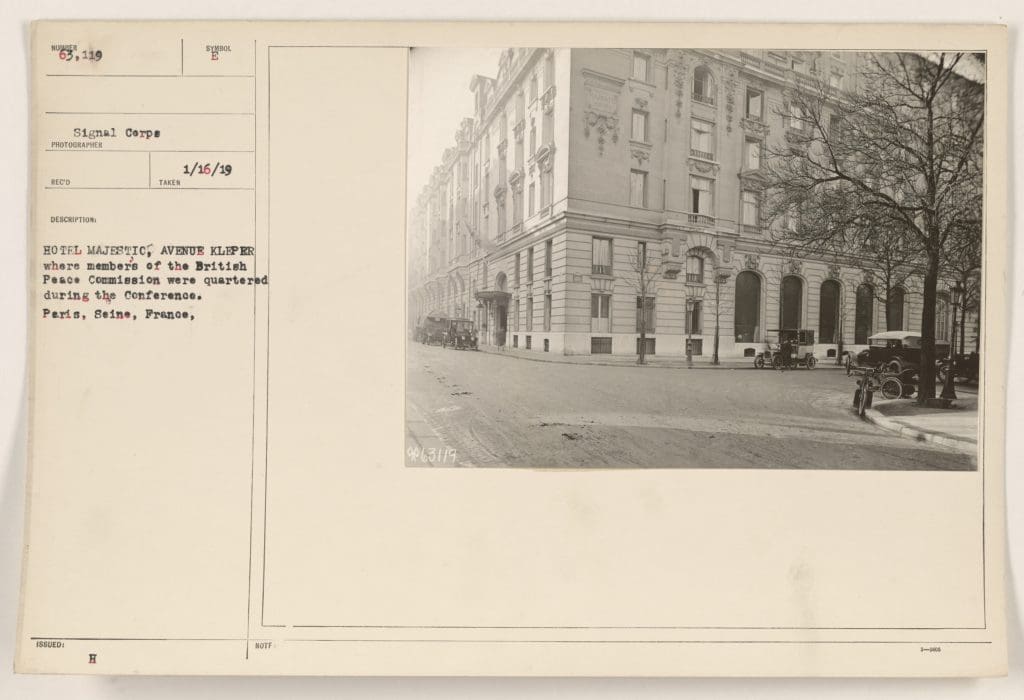
Arthur. It started to make some sort of sense. I should have made the connection between Paris and Arthur. But why send a telegram to Faulkner? ‘I know Mr Burgess, He’s a long-standing family friend. Does he say… Is there a personal message for me?’
‘Personal – no, I’m afraid not. The telegram is signed AB, Head of International Security in the War Office. So, he’s a pretty important fellow, your Mr Burgess.’
‘Yes, I know he works in the War Office, but I had no warning that he might…’
‘Take a look for yourself, Miss Kiten.’ He handed over the telegram.
I scanned it quickly. Abbreviated staccato phrases, much as Faulkner had reported; nothing remotely conversational or familiar. Disappointed. Intrigued. Whatever was behind the telegram, there was no way I could deny ‘Uncle’ Arthur.
‘Thank you, sir. I’m ready to go. To Paris.’
‘Good, that’s the spirit.’ He checked his watch. ‘There’s a train in forty minutes. See Sergeant Chambers out there would you. He’ll organise your discharge, travel documents and with a bit of luck, there’ll be a motor car available to get you to the station on time.’


Cathie Dunn
Posted at 03:03h, 19 SeptemberThank you for hosting Paul Walker today with A Turbulent Peace. xx
Linnea Tanner
Posted at 18:34h, 19 SeptemberHi Cathie–It was my pleasure to introduce Paul Walker to my readers and to learn about his book, “A Turbulent Peace.”
Paul Walker
Posted at 05:32h, 19 SeptemberMany thanks for hosting @linneatanner
Linnea Tanner
Posted at 18:34h, 19 SeptemberHi Paul–It was my pleasure to host your blog tour for “A Turbulent Peace.” The premise of your novel is intriguing, and I enjoyed reading the excerpt.
Joy Gerken
Posted at 08:08h, 20 SeptemberThank you. I love and write historical fiction. One for my T.B.R. LIST.
Linnea Tanner
Posted at 12:51h, 30 SeptemberThank you, Joy, for visiting and commenting on the blog tour for Paul Walker and his historical fiction novel, “A Turbulent Peace.” This sounds like an interesting premise following WWI.